What is OT?
Occupational Therapists are health professionals helping people of all ages to better perform the everyday activities (or occupations) that they need to, want to, or are expected to perform.
For children this means playing, learning, and being part of a family and friendships.
How can Occupational Therapy help my child?
Occupational Therapy can assist your child to develop or strengthen the skills that support learning, playing and relationships at school and at home.
Our experienced therapists are specially trained to work with children with additional needs including children with a diagnosis of Learning Difficulties, ADD/ADHD, Aspergers Syndrome, Autism Spectrum Disorders, Chromosomal Disorders, Dyspraxia or Sensory Processing Disorders.
Handwriting
The amount of class time spent mastering the complex skill of handwriting has decreased whilst the demands of writing have increased. We use FUN, effective ways to teach handwriting using all of the body’s senses.
Visual-spatial learning skills
Being able to use a variety of learning styles helps us to learn easily. Visual-spatial learning is an essential aspect of literacy and numeracy skills. We can help children to process visual information more effectively.
Prewriting and school readiness
Give your child the best possible start to their schooling. Develop underlying skills to handwriting including drawing, tracing and copying lines as well as using a mature and functional pencil grip.
Being organised
“What do I need to do? How am I going to do it? How much time do I have?” We help children to develop the thinking processes and supports they need to enable more independent working.
Fine and gross motor skills
Fine motor skills make up 40-60% of the primary school student’s day. Scissors, pencil activities, shoelaces, counters…the list goes on. Supporting fine motor skills and enabling mastery of balls, playground equipment, correct sitting posture are the gross motor muscles. We help children develop the body awareness, strength, coordination and physical endurance they need throughout the day.
Sensory processing
Learning requires the meaningful interpretation of information from the environment (vision, hearing, touch, smell and taste) as well as from within the body (movement and internal body awareness). Most of us take this for granted. Sensory processing difficulties can hamper social and academic performance and cause emotional stress. OT’s can help children feel comfortable “in their skin”.
Social and play skills
To be able to confidently approach other children, establish friendships, share, negotiate, take turns, tolerate winning and losing and listen to instructions.
Imaginative play skills underlie social skills and creative writing skills.
Technology to assist learning
We will recommend the right tool for your child, teach them how to use it and help make it work in class. Recommendations may include pencil grips, fidgets, sloped boards or cushions.
Self-care skills
Removing and putting on jumpers, doing up zips and buttons, able to look after belongings, open lunchboxes, drink bottle and sandwiches as well as toileting.
Attention and concentration
If a child is easily distracted, fidgety they cannot learn effectively. We guide children to discover their “body engine” and identify their own Zones of Regulation, helping them to be calm and alert, so they can be focused.
Confidence and motivation for learning
One of the first outcomes of our therapy is an increase in confidence and motivation to “have a go” at activities which were previously “too hard”.
Self Regulation
We explore activities with your child to develop strategies so they can begin to self regulate themselves and their own behaviour. Practical home and classroom strategies can also be explored with parents and teachers.

